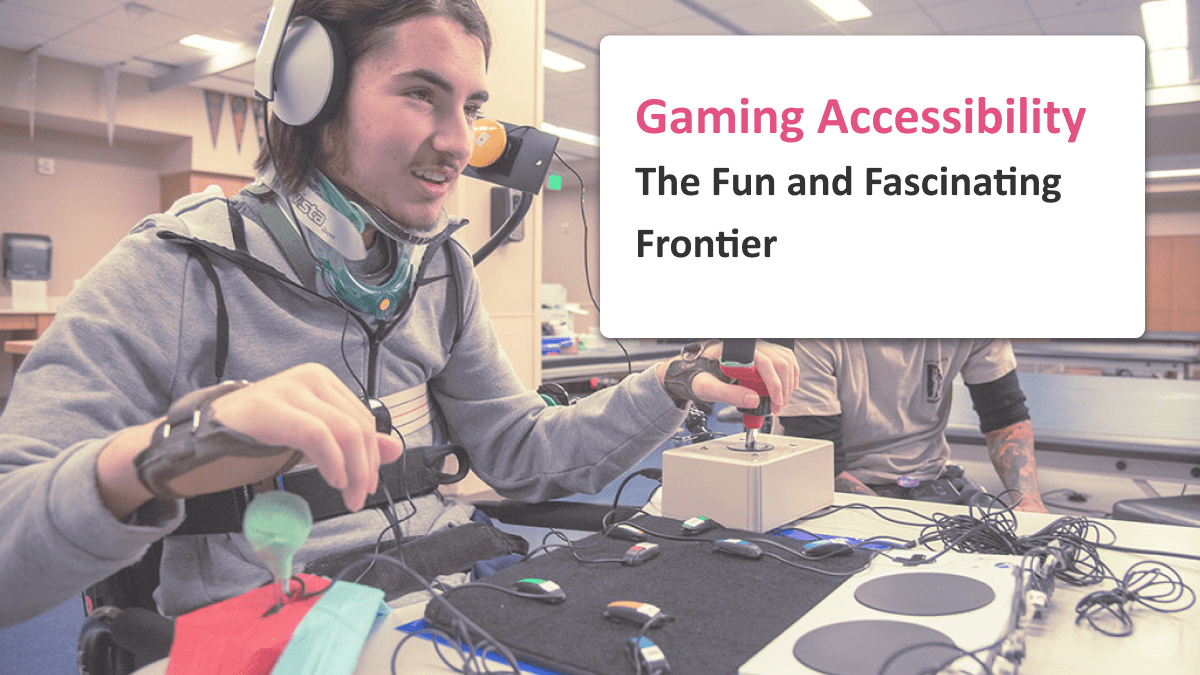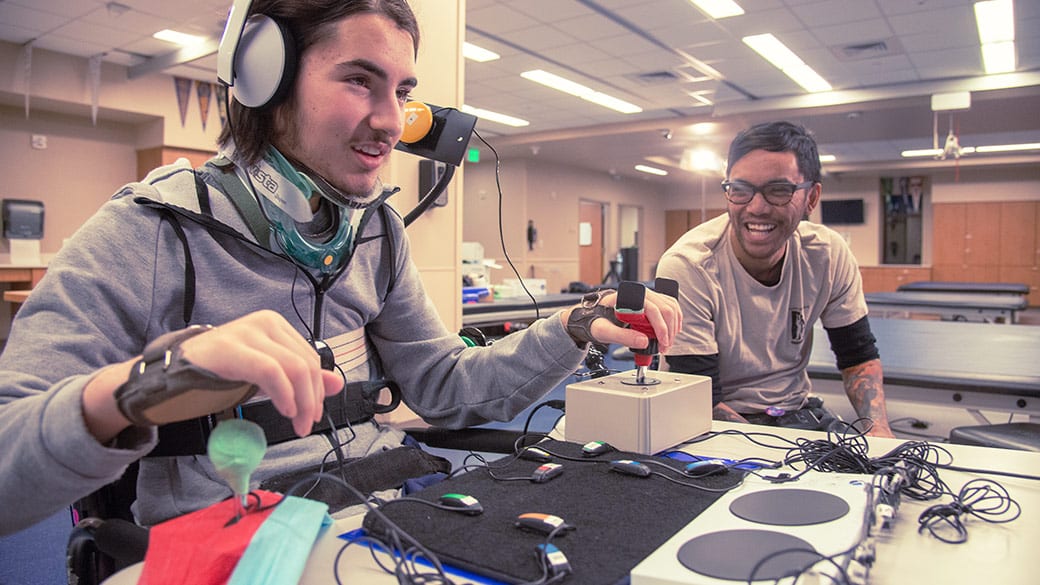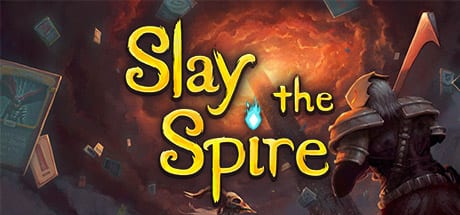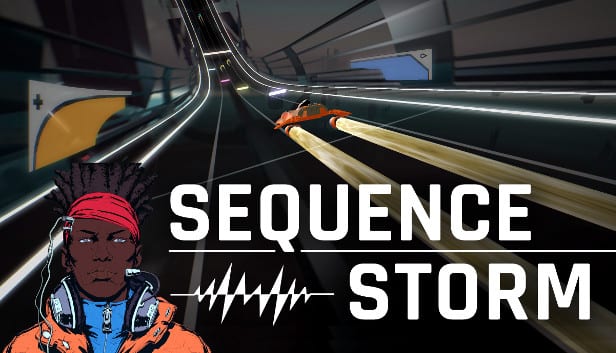
Gaming Accessibility
Reading time: estimated 7 minutes
Sam Proulx, Accessibility Evangelist at Fable, discusses his experiences with computer gaming. He makes the case that accessibility isn’t just for work and essential services, and that making games accessible can help us advance the frontier of accessibility for everyone.
As a blind screen reader user, I take pride in the fact that, in general, I’m just as productive as my sighted co-workers. Thanks to my ability to touch type and listen to my screen reader at well over 300 words per minute, I can create and review documents just as fast as anyone. Thanks to my ability to problem solve and strategize, even when things aren’t perfectly accessible, I can almost always make my way through the problems. But I wasn’t born with these skills! So where did they come from? What makes me the skilled computer user I am today?
Anyone who grew up with a steady diet of computer games won’t be surprised at all by the answer. Text based adventure games like Planetfall and Planet Of The Robots not only taught me to touch type quickly and accurately, but kept me interested and wanting to learn. As well, they helped me get used to text read by a synthetic voice. When I grew slightly older, games like Utopia would teach me about teamwork and planning, and Photopia would teach me that games can be about more than combat or puzzle solving. It’s fair to say that without the games I played as I grew up, I wouldn’t be the person I am today, and without the games I still play as an adult, my life would be much less exciting.
But despite this, most AAA games are inaccessible to anyone with a disability. They have no accessibility features at all and make no accommodations for those with differing abilities. The situation has only begun to change over the last couple of years, as a few ground-breaking companies realize the value of accessibility and adaptivity. In this article, using my personal experiences, and data surveyed from Fable’s community of people with disabilities, I’ll go over some of the reasons for this sad lack of access, and hopefully convince you that making games accessible is just as critical, possible, and high impact as every other sector of accessibility.

Do people with disabilities even play video games?
Even with the sad state of accessibility in gaming today, the answer remains “Yes!”. In a survey Fable conducted with its community on gaming, 65 percent of respondents identified themselves as a gamer. This shouldn’t be surprising. Gaming has gone from a hobby seen as something for geeks, to a multi-billion-dollar industry that makes hundreds of different types of games, for hundreds of different types of people. Why wouldn’t this be something the one in five people who live with a disability participate in?
Of course, the lack of accessibility support in mainstream games does mean that gamers are unequally distributed. While downloading a game on a computer or phone and trying it out is easy and low risk, purchasing a console is another matter entirely. If I purchase an expensive console, I want to know that I’ll be able to use it and that I’ll have enough accessible games to play to justify the purchase. This experience is not unique to me: only 23 percent of our community of assistive technology users owns a console. Compare that to the general US population, where 73 percent of people own one.
In fact, as someone who grew up in a house without any other gamers, the PS4 was the first console I ever used on my own, and The Last Of Us 2 was the first game I ever played with a standard controller, rather than a computer keyboard.
Yes. People with disabilities want to play. Even without help or support from the industry, they’ve been trying to play for years. So, why not embrace the 20 percent of the market you’re leaving out?

Isn’t making games accessible far too difficult
This is just not true. In fact, depending on the game, accessibility is so easy that it’s sometimes added by hobbyists after the fact. One example of this is the deck-building game Slay The Spire. During the COVID-19 pandemic, a frequent Slay The Spire player wanted his blind girlfriend to be able to play the game. So, over the course of a couple of days, he created Text The Spire. Of course, this is a mod, so it only works on PC, via Steam. But with just a small amount of work, the developers could have easily added screen reader support, making the game playable on PC, mobile, and console. This would have also saved blind people from a complex multi-step configuration process.
This same thing holds true for many genres of games, from casual turn-based games, to collecting and deck-building games, to MMORPGs. Instead of changes in design, or new ways of delivering information, these games just require accessibility support to be added to controls and menus.
But even in more complex games, the design principles and methods to make them accessible are well-understood. The POUR (perceivable, operable, understandable, and robust) guidelines can serve as a starting point for game developers just as well as everyone else.

Won’t making games more accessible make them less fun?
No. In fact, making games more accessible can make them more fun! Including accessibility during the design of a game can help creators think outside the box, to create new and different experiences, that use different senses in unexpected and interesting ways, and allow for innovative new types of interaction. It also allows games to be customizable and adaptive, allowing people of differing abilities to have an equal amount of fun. For example, the game Sequence Storm starts by offering an entirely new sound-based take on racing games. It adds tons of accessibility options, and configurability of controls, to create a game that anyone can enjoy, no matter their ability or expertise.
Similarly, The Last Of Us 2 can be adapted to many types of players, from expert blind gamers who want a real test of skill, to casual sighted gamers who just want to experience the story. Instead of reducing the fun, multiple options and configurations for a game, increase them.

When talking about gaming accessibility, there is sometimes a feeling that it’s not “important”, or that it doesn’t matter. That it’s more critical for office apps, CRMs, and other mainstays of the working world to be accessible – because games are just entertainment.
First off, games are a lot more than entertainment. They offer virtual spaces to learn, explore, socialize, compete, build friendships, and experience stories. Second, the more accessible a game is, the more inclusive it becomes, and the more people can enjoy it. That means a bigger market, and thus more purchases; who wouldn’t want that? Third, making many games accessible isn’t difficult. But even when it is tricky, it offers the opportunity to innovate in new ways. That innovation might even become useful as an accessibility technique outside of gaming! But last, and most importantly, people with disabilities are people, just like anyone else. Our desire for entertainment and fun is just as valid as anyone else’s and does not need to be justified outside of that. Games are a critical part of the modern digital world. At Fable, we believe people with disabilities should be able to access everything, no matter if it’s the latest project management tool, or the latest in gaming.
If you’re interested in learning more about how to make your company’s apps, websites, or games more accessible, get in touch with Fable.

About the author
Sam Proulx, Community Lead, Fable
Samuel Proulx is the Community Lead at Fable. Sam has managed online communities in various spaces for 18 years; he brings this expertise to Fable, helping us build an inclusive team of people from all walks of life, which spans the entire country. Completely blind himself, he knows and values the importance of accessibility and diversity in all aspects of life. Sam is an expert in accessibility, accessibility testing, community management, Drupal, WordPress, and Ubuntu.
